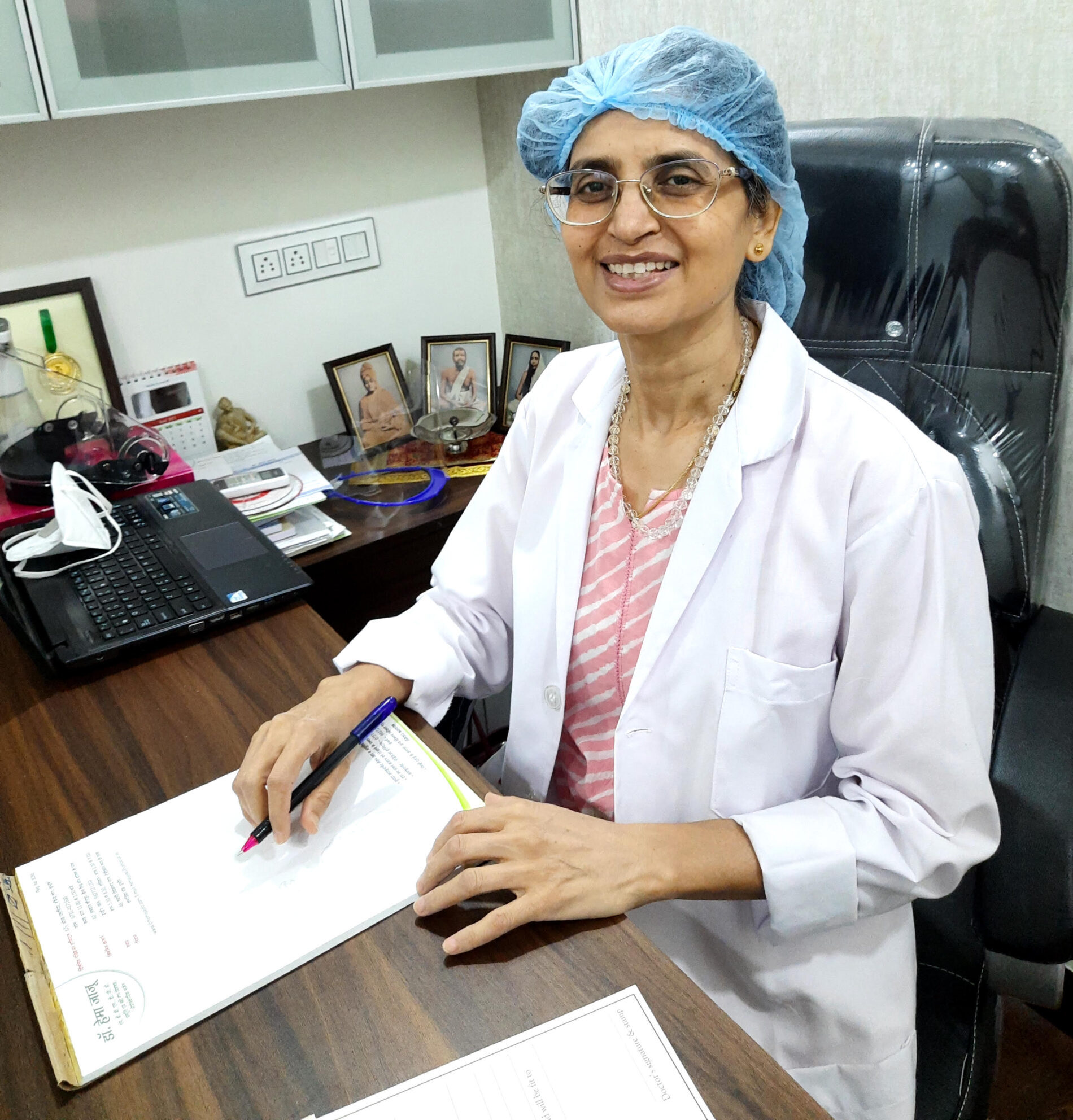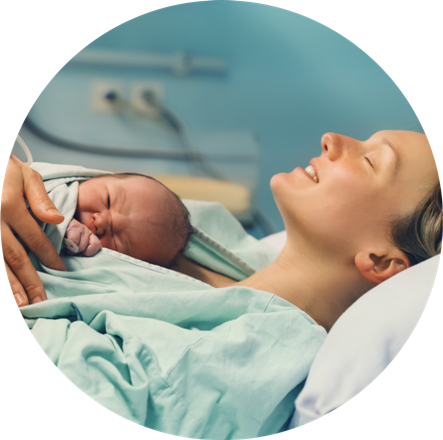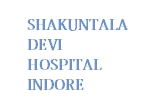Pregnancy Concerns
From mere womanhood to motherhood, we help you carve your every moment. We know that it is special. That is why we assure you to always stand by your side with our best in class-services.
Fix an Appointment with Dr Hema Jajoo – Obstetrician & Gynecologist in Indore

Plan Table
At Matricare Clinic, we will always be by your side to guide you in different stages of this beautiful journey of 9 months and thereafter……
Pre-Conception or Pre Pregnancy Counselling in Indore
Pregnancy is a beautiful stage in the life of every woman. To sail through this journey smoothly, couples must prepare themselves. We as a team help you prepare for the same by giving you pre-conceptional counseling. Our preconception or pre-pregnancy counseling will provide you an opportunity to have an open discussion about the risks and health concerns associated with pregnancy which will help you in nurturing healthy stages of pregnancy.
Through this pre-pregnancy counseling we will guide you on the following:
- Dietary planning
- Physical Assessment
- Investigations
- Alcohol and drug use
- Genetic counseling
- Prenatal vitamins
- Fertility Awareness
- Special needs and follow-up care
- Exercise routines

Pregnancy care or Antenatal Care in Indore
Aim- To have a healthy mother and healthy baby!
Pregnancy care entails providing good care to expectant mothers before, during (prenatal care), and after birth (postpartum care). It involves providing education and treatment for ensuring the healthy growth of the baby as well as the mother. It includes mainly-
Regular Antenatal check ups–
Pregnancy and giving birth to a baby are natural processes going on all the time all over the globe. Regular check-ups are required to detect comorbidities like Gestational Diabetes, High Blood pressure, Thyroid disorders etc or complications early and treat them in time. Pregnancy is a very crucial period in the life of the expectant mother. Therefore, we assure you that you will be in the best hands during this period. We will take care of all your issues to lend you the best experience. Once you visit your gynecologist for the first time, your baseline weight, blood pressure, height etc will be recorded and your detailed examination and few basic tests will be ordered. After that , your further visits will be scheduled as follows-
- Once in a month for first six months of pregnancy.
- Twice a month during the seventh and eighth months of pregnancy.
- Once in a week during your ninth month of pregnancy.
- Additionally, during these visits your doctor will assess your as well as your baby’s health by conducting checkups for the following:
- Weight and blood pressure.
- Monitoring fetal heart rate and growth and well-being of fetus.
- Conducting blood test for detecting HIV, anemia and Rh factor, blood sugar level etc.
- Discussing special diet and exercise requirements.
Don’ts of Pregnancy-
- Avoid lifting heavy objects.
- Do not take any medicine without consulting your doctor.
- Avoid smoking and alcohol.
- Avoid travelling especially in first three months and last months of pregnancy.
High-Risk Pregnancy–
Most important aim of regular Antenatal checkups is to identify high risk pregnancies and monitor them so that comorbidities and complications can be prevented both, in mother and baby. So, for safe Motherhood identification of high risk pregnancies is very important. Following are the risk factors for high risk pregnancy-
- Recurrent Miscarriages
- Diabetes
- Negative Rh blood group
- Thyroid disorders
- Bleeding in pregnancy
- High blood pressure
- Obesity
- Kidney disease
- Autoimmune diseases
- Pregnancy associated with HIV/AIDS
- Preterm changes in the cervix
Vaccination during pregnancy –
Tetanus, flu, hepatitis B, and whooping cough are some of the essential vaccines during pregnancy.

Antenatal scans or Pregnancy Scans in Indore
Ultra-sonography is performed to know the growth and congenital anomaly in an unborn baby growing in the womb of a pregnant woman. Till the date, research has shown that Ultra-sonography is completely safe for fetus. But it should not be done unnecessarily. Following types of Ultra-sonography are performed during pregnancy –
Early scan – between 7 to 9 weeks. Following things can be seen
- For dating the pregnancy.
- If heartbeat is started or not.
- For multiple pregnancy.
- If there is ectopic pregnancy.
Level 1 sonography or NT scan-
Done between 11 to 13.6 weeks.This scan is important for detecting early congenital defects and for down syndrome screening.
Level 2 sonography or target scan –
Done between 18 to 22 weeks. Maximum congenital defects can be detected in this scan.
Growth scan –
This is done between 32-36 weeks to know the growth and the well being of the baby along with the amount of liquor amount, weight of the baby.
Doppler study-
This study is also done by sonography machine. In this study, the blood vessels of fetus are evaluated. This study of blood vessels plays an important role in high risk cases like high blood pressure, gestational diabetes, intrauterine growth retardation etc. to know the well-being of the fetus and the timing of delivery.

Baby Birth or Delivery in Indore
Here comes the moment you have been waiting for!! Giving birth to a child is a challenging process and sometimes becomes complicated.
Types of Delivery
Normal vaginal Delivery
Vaginal delivery is the birth of offspring or babies in humans through the vagina (also called the “birth canal”). It is the natural method of birth for all mammals. It basically constitutes three stages of labor;
- The shortening and cervical dilatation.
- Gradual descent and birth of the baby.
- Delivery or expulsion of placenta.
Painless Normal Vaginal Delivery
Painless delivery refers to the use of an epidural injection which is given by an anaesthesiologist for pain relief during labour. It is injected in the lower back, and a very thin plastic tube is placed through which drugs are released around the spinal cord.
Cesarean Delivery
Cesarean delivery, also known as C-section delivery is a surgical procedure in which the infant is delivered by making an incision in the mother’s uterus and abdomen rather than by achieving the delivery through the vagina.


Baby Care in Indore
Birth is a major challenge to the newborn to negotiate intrauterine to extrauterine life successfully. The transition from intrauterine to extrauterine life is a dramatic one and demands considerable and effective physiological alterations by the baby in order to ensure survival. This immediate care time is crucial to the babies for subsequent well-being and adaptation. Skilled care during labor and childbirth with prompt management of complications alone can prevent about 50% of newborn complications. Continuation of adequate newborn care in the postnatal period can prevent 75% of current newborn deaths.
The essential newborn protocol is a series of time bound and chronologically ordered care that a baby receives at birth, and it has standardized effective procedural steps: dry and stimulate, evaluate breathing, cord care, keep the newborn warm, initiate breastfeeding within the first one hour, administer eye drops/eye ointment to prevent eye infection, administer vitamin K intramuscularly, place the newborn’s identification bands, weigh the newborn when it is stable and warm, and record all observations and treatment provided. Under expert guidance of Dr Hema Jajoo, you will see your newborn bloom like a flower.
Breast Feeding Treatment in Indore
Bottle feed fills the belly but breastfeeding fulfils the soul
Breastfeeding is the best source of nutrition for your baby. It plays an important role in the development and well being of your newborn. For the first six months, your breast milk serves as a perfect nutrition for your baby.
Usually, you can start breastfeeding your baby immediately after birth. This helps your uterus to contract well and also help in early milk secretion. The initial breast milk is referred to as colostrum which is thick and yellowish in color. It is full of proteins and antibodies which protects your baby from certain infections and is a good source of nutrition too.
Benefits of Breast feeding
- Perfect nutrition for the newborn.
- First milk also known as colostrum for first 2 to 3 days also known as first vaccination, ensures protection against diseases like cold, cough, fever, diarrhea eye.
- Ensures bonding between mother and baby which gives baby sense of security and prevents from psychological problems in later life.
- Protects mother from breast cancer.
- Gives mothers a good factor by realizing oxytocin hormone.
- Helps mother in reducing weight.
- Helps mother’s uterus to come back to prepregnancy state.
- Prevent obesity in both mothers and babies.


Motherhood -A Divine Feeling
HOSPITALS ASSOCIATED






Trimester Chart
Finally, you are pregnant!! you will be interested to know how your baby develops in the womb. We will take you through this journey. Pregnancy period or Antenatal period is of 9 months and divided into three trimesters.
First Trimester from 1st week to 12 weeks.
Second Trimester from 13 weeks to 26 weeks.
Third Trimester from 27 weeks to end of pregnancy.
Month 10 (Weeks 37 through 40)
- In this final month, you could go into labor at any time.Baby moves less due to tight space.

- Baby’s head comes down in the uterus in most of the cases.
- You may feel uncomfortable in this final stretch of time as the baby drops down into your pelvis and prepares for birth.
- Your baby is about 18 to 20 inches long and weighs about 7 to 8 pounds.
- Your baby is ready to meet the world ……….
It was good experience with dr. Hema.she is very experienced and care her patient like family member.I was so scare in this covid time to handle my situation but she nicely took care and counselled me n took care of treatment.I highly recommend Dr. Hema jajoo to all pregnant ladies.
Shraddha Ameriya(Verified by Practo)It Give me Immense pleasure to say that my exp with Dr Hema was really Good and amazing.She is quite experienced, Very humble and Friendly. We felt very comfortable with her. Thank you Doctor..!!
Sapna shah(Verified by Practo)Mam is very humble and friendly. She is quite experienced in her field. I was terrified of c section surgery due to my previous experience as it was a horrible one but during the birth of my second child she , along with her team made me feel very comfortable and everything went smoothly. I and my husband are happy to have our case handled by her.
Stella Jordan(Verified by Practo)
Treatment Available
Obstetric Care in Indore
- Pre-pregnancy counseling, Regular checkups for pregnant women
- Normal and Operative delivery (caesarian section)
- Painless Normal Vaginal Delivery
- Management of pregnancies associated with diabetes, Obesity, High blood pressure, and Thyroid disorder
- Care for elderly pregnant women
- Abortion and MTP services
- Ectopic pregnancy
- Garbhasanskar counseling
- Exercises and dietary plan during pregnancy
- Recurrent abortions
Infertility Treatment in Indore
- Evaluation of infertile couple
- Ovulation induction
- Follicular monitoring
- HSG
- IUI and other assisted reproductive techniques
Family planning Services in Indore
- Family Planning counseling
- Oral Pills
- Copper T or Multiload Insertion & Removal
- TT Operation / Tubectomy
Gynecology Treatment in Indore
- Menstrual problems like irregular menses, Heavy periods, Dysmenorrhoea, Amenorrhoea
- PCOD
- Leukorrhoea (white discharge)
- Itching in private parts with white discharge
- Fibroids
- Pelvic inflammatory disease
- Ovarian cysts and tumors
- Endometriosis
- Hirsutism
- Adenomyoma
- Laparoscopy
- Hysteroscopy
- Vaginal Infection
- Mirena Insertion
- Laparoscopic Surgery
- Urinary tract infections
- Gynecological cancers screening like cervical and uterine cancers
- Breast cancer screening
- Urinary incontinence
- Gynecological operations like abdominal hysterectomy
- Vaginal hysterectomy, Non-Descent vaginal hysterectomy (NDVH)
- Ovarian cystectomy
- Recanalization operation for tubectomy patients wanting children
- Laparoscopic surgeries for Ectopic pregnancy
- Myomectomy
Adolescent Clinic in Indore
- Problems related with adolescent girls like puberty menorrhagia
- menstrual irregularities, Dysmenorrhoea,
- Obesity, PCOD, Hirsutism, Pimples, Iron deficiency anemia
Menopausal Clinic in Indore
- Management of menopausal problems like hot flashes
- urinary problems like urinary incontinence
- osteoporosis, irritability, sleep disorders
- mood swings and depression
Breast Clinic in Indore
- Evaluation of breast lumps
- Surgery for Breast lumps like Fibroadenoma and other lumps
- Screening for breast cancer by self examination
- clinical examination and mamosonography
Ultrasonography in Indore
- Pelvic sonography, TVS (Transvaginal sonography)
- Obstetric sonography – Early pregnancy scan, Growth scan











































